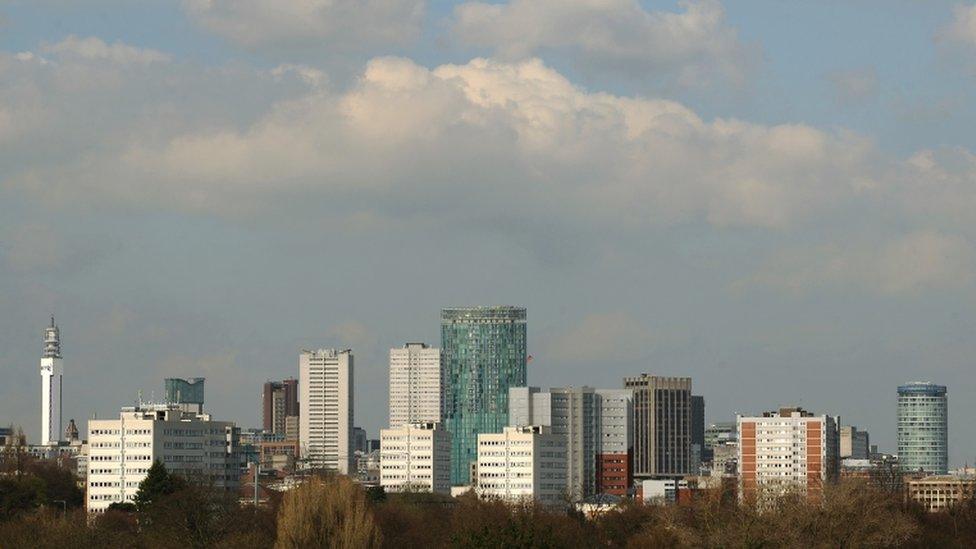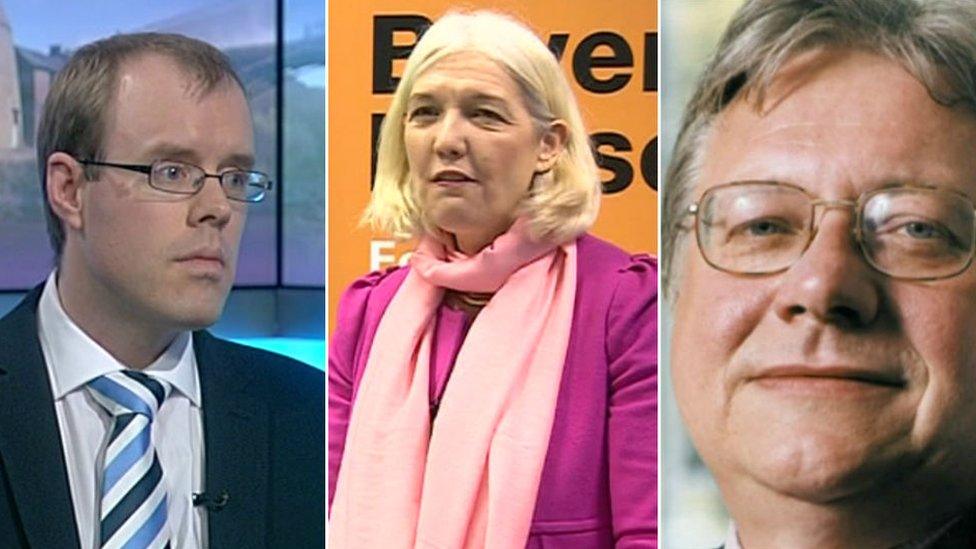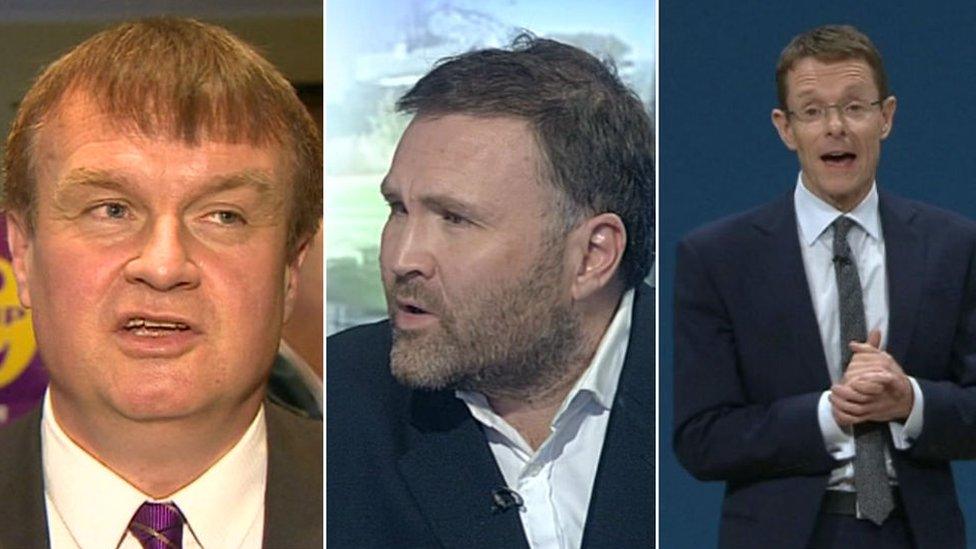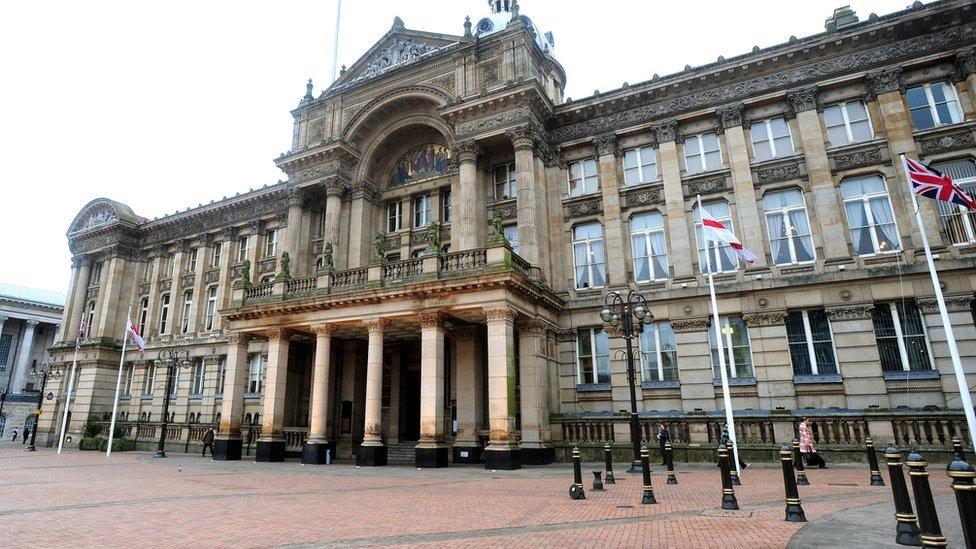West Midlands mayor: Your questions answered
- Published

Birmingham and neighbouring towns and cities are set to be represented by an elected mayor for the West Midlands
People have been using Your Questions to ask us what they want to know about the West Midlands mayor.
You wanted to know what budgetary powers the successful candidate would have.
You asked how much the new role would cost and where the funding originated.
And you wondered which areas would be voting in the elections on 4 May and what would now happen to Lord and borough mayors. Here are some answers to your questions.
What messages did young people have for the mayors? Find out in our Listen Up podcasts

Who will vote for the new mayor?
The mayor is going to head a West Midlands Combined Authority made up of seven constituent member councils - Birmingham, Coventry, Solihull and all four Black Country boroughs of Dudley, Sandwell, Walsall and Wolverhampton.
If you are resident in a ward within those seven council areas, there will be mayoral elections in your area on 4 May.

James Burn; Beverley Nielsen and Graham Stevenson are among six candidates

What will happen to Birmingham's Lord Mayor and borough mayors after the new regional candidate is elected?
There will be no change here - Birmingham's Lord Mayor and the other constituent councils in the West Midlands combined authority will retain their own mayors.
The Lord Mayor, or the borough mayors, usually serve a one-year term of office during which they are designated the first citizen of their borough or city.
They will continue to perform their roles as civic dignitaries, but the difference between their jobs and that of the West Midlands Mayor is the newly-elected candidate has his or her own budget to control across the region.

How much does the mayor cost?
The board of the West Midlands Combined Authority - which will scrutinise the mayor's decisions once elected - decided at a meeting in March, external the mayor's office costs would be £388,000.
Included in that is £250,000 to meet costs of four staff, including the mayor's own £79,000 salary.
It is estimated the election on 4 May will cost £4m and that expense and the office costs will be met from the £36m funding from government which is being put under the mayor's control.
The reason the figure is so high and that it's being met from that single funding source is because this is a so-called standalone election, without council ballots being held at the same time.
The mayor's first term, unusually, will run for three years until 2020, so subsequent elections for the role will coincide with council elections to keep costs down.

Peter Durnell; Sion Simon and Andy Street will also stand on 4 May

What budgetary powers will the new mayor have and will they have any input setting council taxes?
The mayor will control a £1.1bn investment fund over 30 years, or £36m a year.
That money is handed down from government.
They will have powers over economic development, education and skills, housing and transport - including compulsory purchase powers.
The costs of the mayor's office - for the first 11 months of their tenure - will be covered from the £36m fund, but from April 2018 onwards the office will need to fund itself.
In theory the mayor would have the power to add a mayoral precept to council tax to cover those future costs.
Read more about the six candidates from the BBC's Patrick Burns, West Midlands political editor.
- Published6 April 2017
- Published4 April 2017

- Published5 April 2016